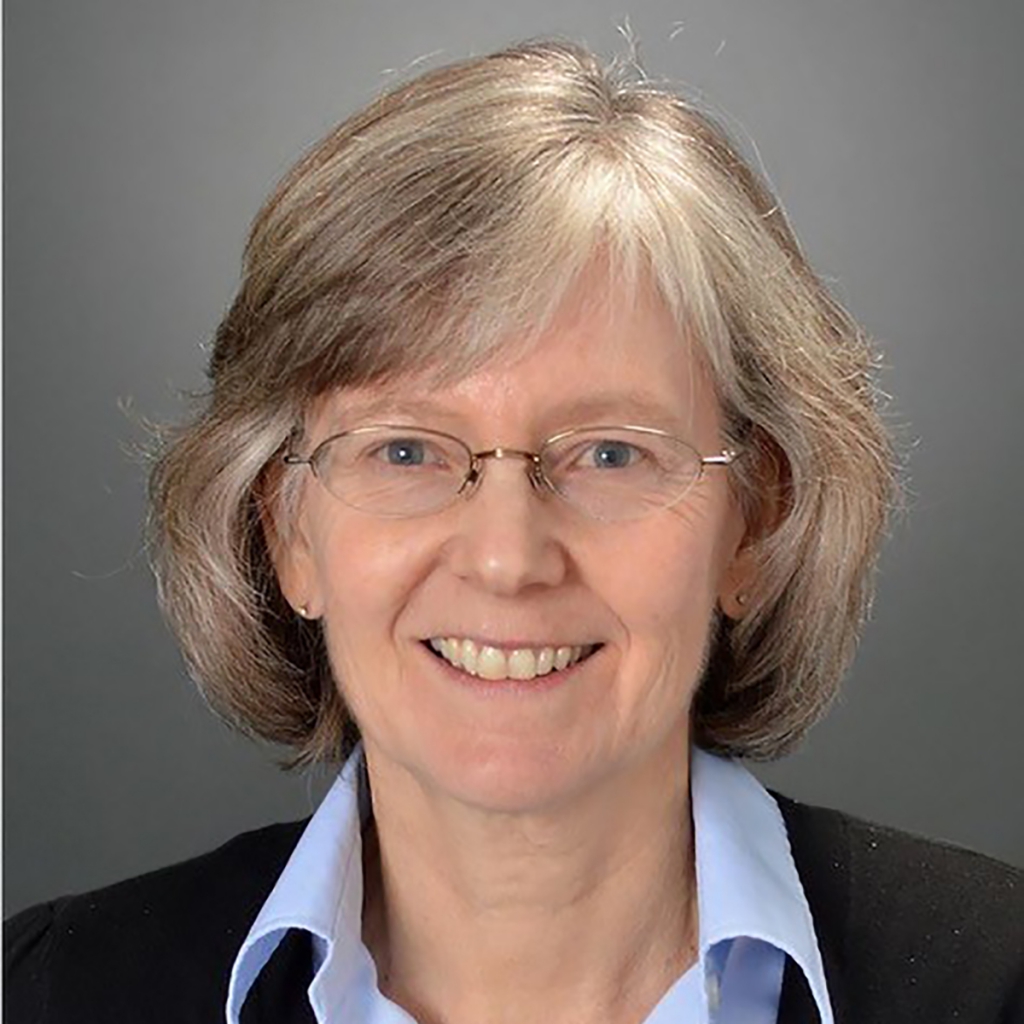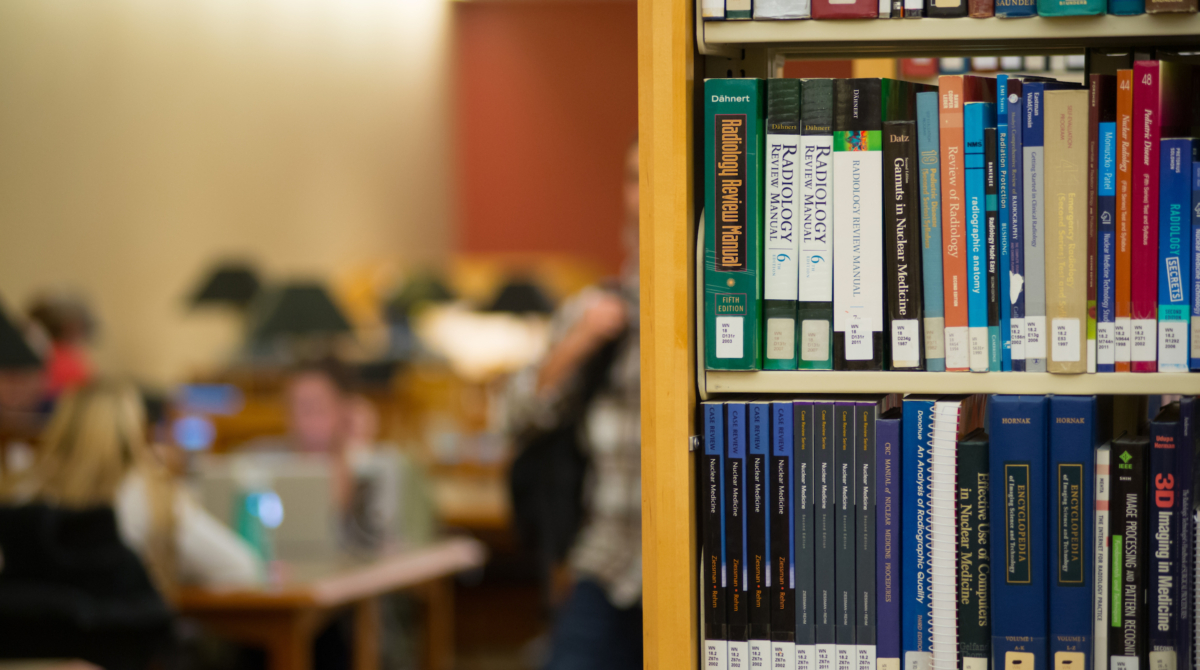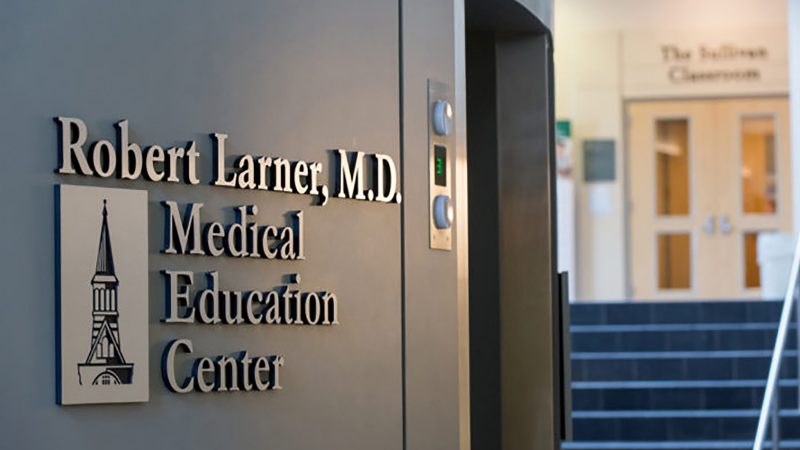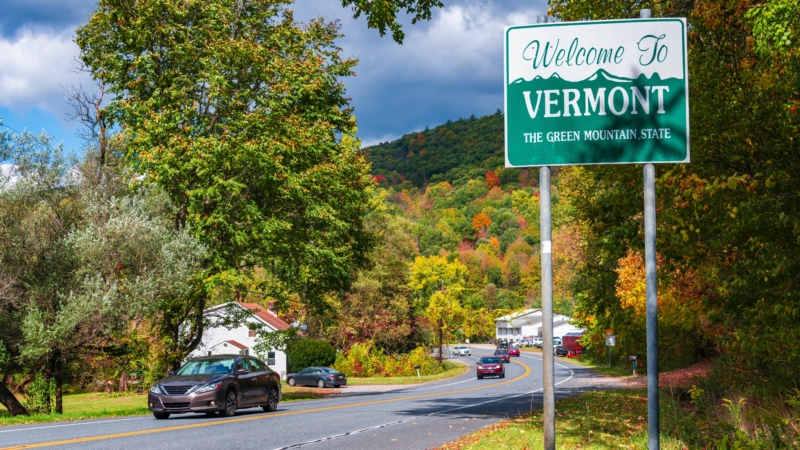Donna O’Malley knows information — how to find it, assess it, and use it.
Hers is an enviable expertise in the age of information overload, where content credibility is too often measured by the number of likes an article garners on social media. “The line between entertainment and news, entertainment and information, is seriously blurred,” O’Malley cautions.
As Library Associate Professor in the Dana Medical Library, O’Malley serves as the librarian liaison to the UVM Public Health Program, as well as a liaison to Larner College of Medicine graduate programs. “My role is a combination of education and helping students access literature,” says O’Malley, whose own research has centered on software tools for accessing and organizing published scholarship.

Personalized Research Support
Many students are surprised to learn that O’Malley is available by appointment to provide personalized research support. For students who want to develop more research confidence, O’Malley will start from the ground up, helping narrow down a research question, identify search terms, and develop a research strategy. “It helps to start with a clear question, to really narrow what you’re looking for,” she says. O’Malley finds that even one appointment can help clarify a student’s research direction, though she says it’s common to meet with students multiple times over the course of longer projects.
“Some students haven’t been in a library in 20 years, and need more help getting started,” she says, “where some have a PhD in biochem but might not be familiar with the wide range of sources across subject matters that are used in public health.”
O’Malley is passionate about working with students from diverse backgrounds who are approaching public health from unique perspectives. “It’s so much fun to learn about things I had never even thought about while supporting student research,” she says. Another rewarding aspect of her role? Helping students identify journals for their own research submissions.
Best Practices for Researching Public Health Information
No doubt, a lot has changed since O’Malley completed her degree in Library Science in 1985. “It used to be that people had trouble finding information on even the simplest topic,” she explains. “And now, the problem is that you find too much information on simple topics — or even all topics. I think the education that public health students get in using evidence — finding it, reading it, will be very helpful in navigating the world of information and misinformation moving forward.”
You might expect an information expert to be frazzled, if not despondent, about the current crisis of misinformation that is prolonging the Covid-19 pandemic. O’Malley, however, is unflappable. Talking to her, one gets the impression that perhaps keeping a level head is the first step to researching public health information.
The next steps, according to O’Malley, include:
- Relying on peer-reviewed articles published in academic journals
- Looking for sources that contain a bibliography or list of references
- Sourcing the most current research or articles, since public health knowledge is continually evolving
- Starting your research with a clear question that helps you stay focused
For students who are interested in sharpening their information analysis skills, O’Malley points to tutorials on evaluating and verifying sources that her UVM Howe Library colleagues developed. And for non-academic folks who are looking for credible health-related information, O’Malley recommends the MedlinePlus database.
Learn more opportunities to work with O’Malley and the expert public health faculty in UVM’s Master of Public Health 42-credit program offered in collaboration with the UVM Larner College of Medicine.




